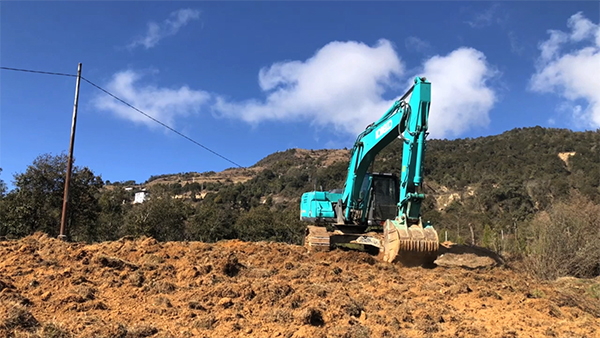 If anything has made livestock rearing difficult for the farmers in Bhutan, it is the challenges posed by the lack of fodder and animal nutrition feeds. Living off dairy products to achieve self-sufficiency, people in Trongsa are worried about the decline in dairy products. 14 households of Tashipokto and Dorji Goenpa of Nubi Gewog are now going to revive their land which was left fallow for over a decade and convert it into a mass pasture.
If anything has made livestock rearing difficult for the farmers in Bhutan, it is the challenges posed by the lack of fodder and animal nutrition feeds. Living off dairy products to achieve self-sufficiency, people in Trongsa are worried about the decline in dairy products. 14 households of Tashipokto and Dorji Goenpa of Nubi Gewog are now going to revive their land which was left fallow for over a decade and convert it into a mass pasture.
The initiative is expected to improve fodder quality and animal nutrition, which would boost livestock products. Dzongkhag Livestock Officials said that the lack of adequate quality fodder resulted in the decline of dairy products for some years now. This has discouraged residents from rearing livestock.
The Milk Processing Unit in the village, which initially started with 24 members is only left with 14 now.
The land reclamation works in about 26 acres of fallow land has been achieved. Farmers will now have to sow perennial hybrid grass mixtures and fodder trees which according to officials will last for about 5 years.
Officials said that the grass grows to a knee height and it could be harvested three times per winter and the hay produced can also be used as fodder.
Since almost all the residents in Dorji Goenpa chiwog raise cattle, locals welcomed the initiative.
Tsagay Chewa, a farmer in Dorji Goenpa said, “the people here would be benefited immensely if this initiative of fodder plantation proves a success. Because the Tashipoko chiwog here mainly depends on livestock.”
“We like to appreciate for increasing the fodder variety. I have around twelve cows and the most difficult task is getting feeds for them,” said Awla Pem.
To make the initiative a success, the farmers say they need electric fencing to protect the fodder.
“With the government’s support, we are now able to plough and sow fodder grass. However, it isn’t enough. We heard electric fences would be also provided. We are expecting it. Otherwise, deer, wild boars and other wild animals ravish the limited fodder we grow and we lose hope,” said Sangay, a farmer.
The Livestock officials said the office had ordered electric bars and they would be constructing electric fencing in next phase. After which the power tillers would be deployed to plough the excavated lands and from April, farmers will start sowing and planting the grass.
The project, according to the officials, is to reduce human-wildlife conflicts and such program will also be initiated in other places.
Passang, Trongsa




